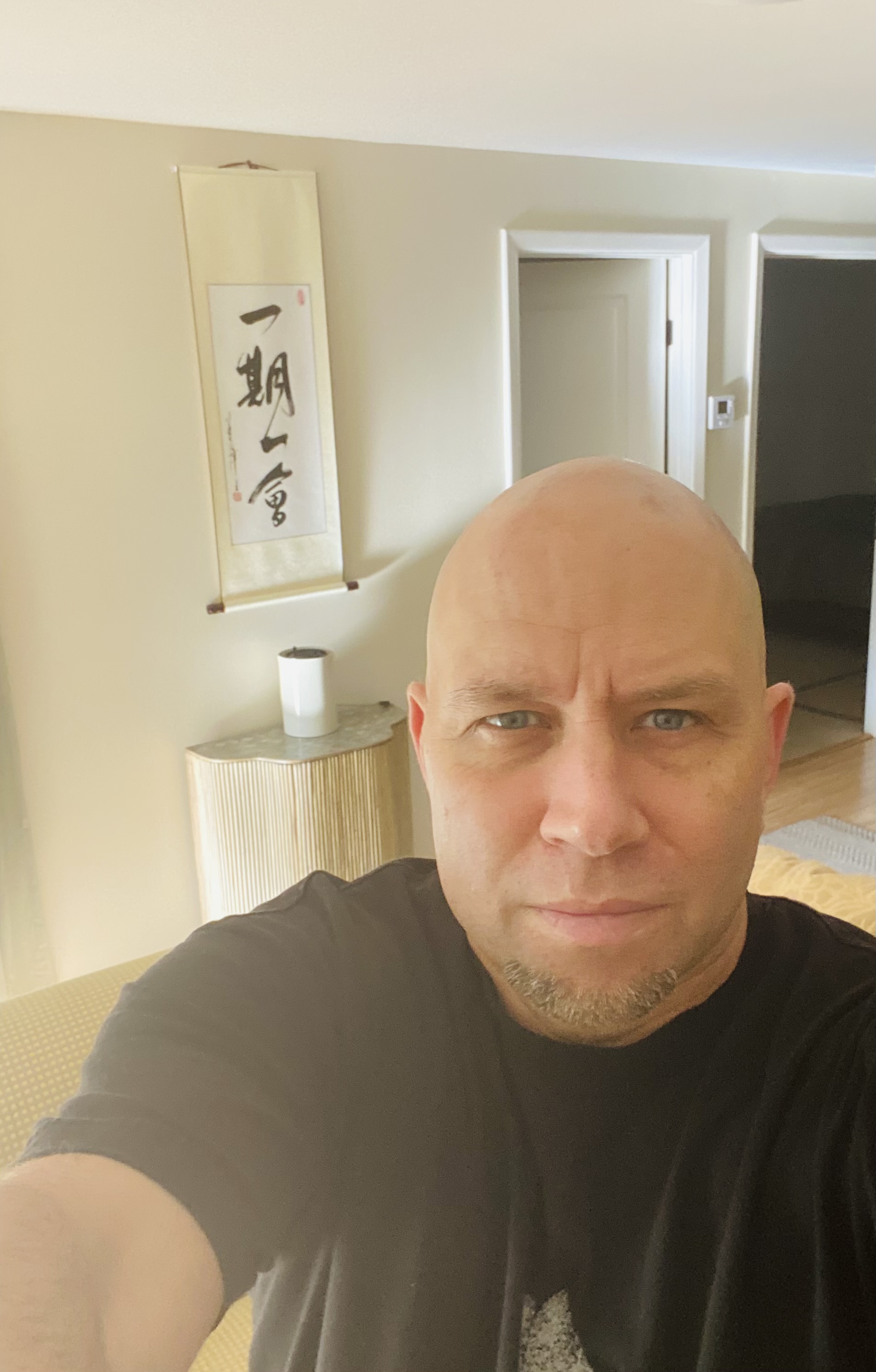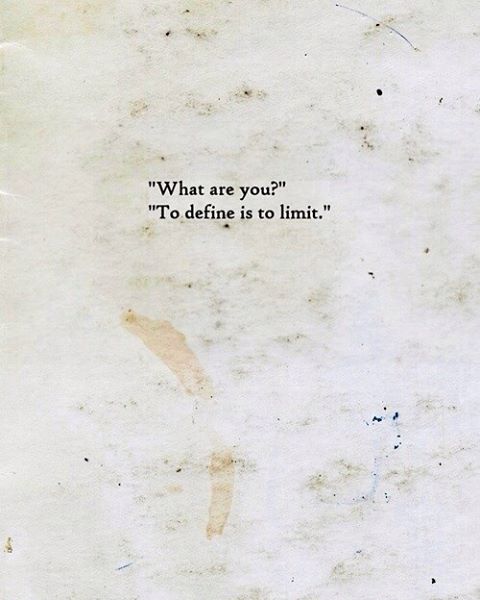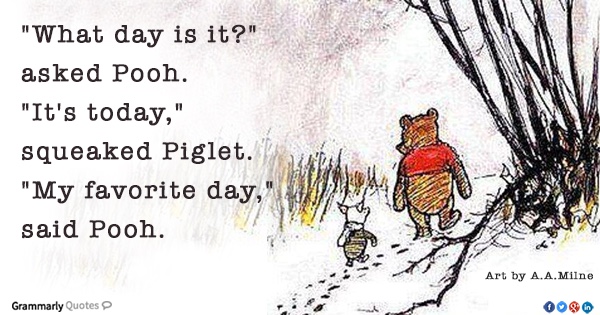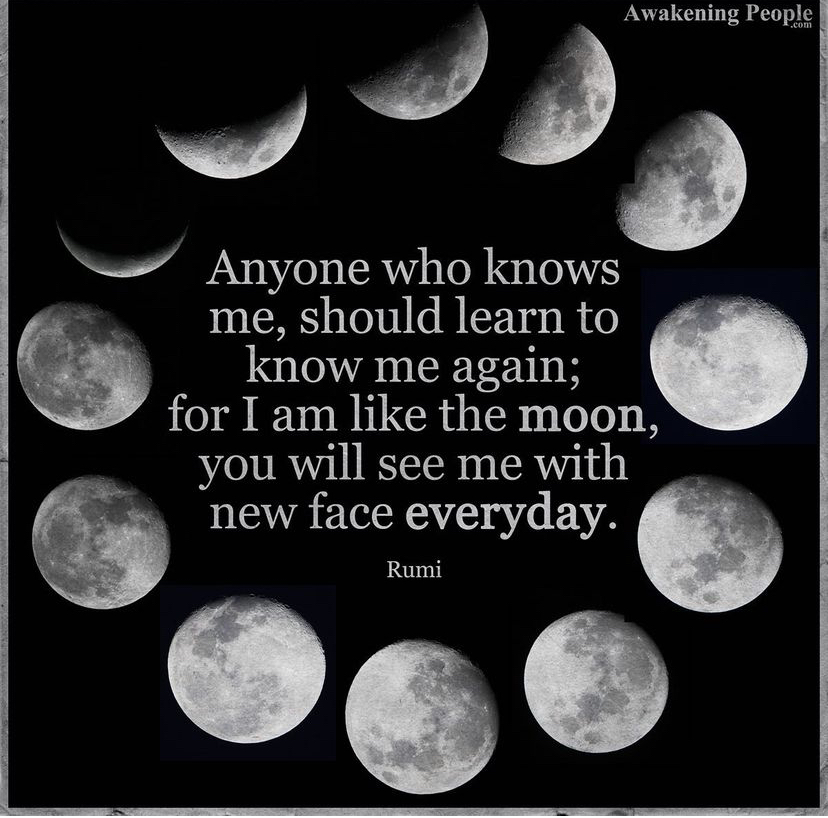Episode Transcript
Speaker 0 00:00:00 So for me, I have, I have this fascination with these stories that I hear about people who are, I'm fascinated by the idea there are people who are on their deathbed who make choices to wait for so and so to show up. Oh,
Speaker 1 00:00:19 Yeah. Yeah.
Speaker 0 00:00:19 And I brought this up to this woman yesterday, um, Jean, and she was like, oh, yes. Like she's seen it lots of times.
Speaker 1 00:00:29 Yeah.
Speaker 0 00:00:30 Who, people who are like, not here, uh, at least not recognizably in the room. Yeah. But they either wait for people to leave the room or they wait for a certain somebody and then they can pass along. Yeah. I'm fascinated by that.
Speaker 1 00:00:47 Well, it's so interesting because I was just telling the story. My practice happens to be meditation, and I was introduced to meditation through the Snow Leopard, which is a book by Peter Matheson, who passed away in 2012. Mm-hmm. <affirmative>. Uh, he was, um, at that time he lost his wife, Deborah loved Cancer. The year before his journey to Nepal and Tibet. He was invo invited, uh, by the, uh, the, uh, biologist George Hawk, who wrote a compendium book to the snow leopard called, uh, oh, what was it? Uh, stones of Silence. And, uh, Matheson, his wife, Deborah Love Pass, introduced him to Zen Buddhism.
Speaker 1 00:01:36 His whole journey was, uh, recorded, um, in these sort of like journal entries that he went back for five years afterwards and brushed in the histories and influences of the era period, and mysticisms of all traditions. And it opened me to that element of life that I had never been exposed to before. I grew up as a reformed Jew. My mother, uh, was Irish Catholic, and, uh, you know, I'm not even poetically by Jewish law Jewish, so I went to like Hebrew school and barely, I don't even know what I did there, but like <laugh>. Um, when I, when I was exposed to Snow leopard, I was like, my, my jaw dropped and my eyes were wide open. I was like, I did not realize this element to touch, this element of left, this deep element. Mm-hmm. <affirmative>, I didn't know that people or that it was even a possibility.
Speaker 1 00:02:30 So mm-hmm. <affirmative>, I, this was when I was in Israel. Uh, my, my friend sent me a copy of the snow Leo, and then I, when I returned to Buffalo after the end of the program, I contacted the Himalaya Institute, which is a, which is a local, it's actually out of Hensdale, Pennsylvania, but they have a local chapter, um, of the Himalaya Institutes a yoga institute. And Mary Gal Salk was the director at the time, and I asked her if she knew of any Zen Buddhist groups. And so she gave me the number of John Ban Bernard, who was a co-leader of the Zen Buffalo group at the time in affiliate of the Rochester Zen Center. And so John and I, in our first conversation, we became fast friends. And he said during this hour and 45 minute conversation, first time we're speaking, I hope the difference in our age is not an impediment to us being good friends.
Speaker 1 00:03:22 I never was. That's so great. He was 40 years older than I was. Wow. And he was my best friend for a long time during our journey together. He also, as Matheson did, he passed in 2012. And the whole reason I'm bringing up this story is how he passed Mike, which was, um, he had, he was 82 and he was in the hospital, and, um, he knew his time was coming. I had, I had helped him in various ways that he, I mean, we had this very balanced, reciprocal relationship, but, uh, at the end, um, I would drive him for groceries or do whatever I could for him mm-hmm. <affirmative>. And during the end of that time, um, he would, when I would leave, he would hug me and he would say, in this full-bodied bodied earnest heart of an expression, he would just, as we hugged, he whispered in my ear, very fervently, good friend.
Speaker 1 00:04:25 Right. And so he was, and, but when he was passing, um, I got a call from his a that he was getting ready to go, and he waited for me, and this is why I'm telling the story, Mike, is that, um, he waited for me. And, uh, when he was there on his deathbed, I intuitively felt like I should play a recording from the Rochester Zen Center chanting. Huh. And then the recording was the heart sutra. Wow. The heart suture is the condensed teachings of the Buddha. Mm-hmm. <affirmative> the bok compassion from the depths of pro or intuitive wisdom saw the emptiness of all five aggregate Yeah, yeah. Aggregates and, and, and broke the bonds that caused all suffering. Mm-hmm. <affirmative>, and I would wonder myself, what did that BofA see? What did that BofA perceive that he broke the bonds of, of all suffering?
Speaker 1 00:05:24 And so I played that, and sure enough, of course, like I'm playing the heart suture, John was a member of the Zen Center of Rochester and introduced me to the Zen Center at Rochester. Mm-hmm. <affirmative>, I'm playing the chanting, the heart suture, the most important chant in Zen for, um, anything that is to be chanted the heart suture is the, the, the colonel of it. Mm-hmm. <affirmative>, who calls in, I had called him earlier to turns to call Roshi Bok the Abbott or the Zen Center. Mm. Wow. I was calling to see what arrangements or if there was any way to connect, uh, to inform Roshi of John's condition. And, uh, so Roshi calls in during this time, I have to like deny the call. And by the end of the sutra, John had passed.
Speaker 2 00:06:12 Mm-hmm.
Speaker 1 00:06:13 He was gone. And so not only that, that was interesting, but several years later, in an unrelated way, I said, John was the co-leader of the Zen Buffalo group. There was another leader, Dennis Holman. Um, Dennis was the co-leader with John of the, the group. And I met at a gathering, Dennis, and I told him of my, um, experiences with John saying goodbye to John. And he said, Joel, that is very interesting because in a road trip that we had taken together, meaning Dennis and John, uh, Dennis and John had taken a road trip, and during that time, John had confided in Dennis that the way he wanted to pass was listening to the heart suture.
Speaker 3 00:07:01 No way. Yes. No way. Wow.
Speaker 1 00:07:03 Yeah. And I take that how
Speaker 3 00:07:04 Powerful,
Speaker 1 00:07:05 Very powerful. But I, I, I, you know, in trying to make sense of it, like I look at it as like a heart of service. When you extend your heart into service and the magnitude that John did, it all returns to you. Mm-hmm. <affirmative>, nothing's lost, nothing's wa wasted. So the ways in which he wanted to pass, or the ways in which he passed because he gave himself so fully to his community.
Speaker 2 00:07:34 Wow.
Speaker 1 00:07:35 Yeah. Uh, it's a true story. Yeah.
Speaker 2 00:07:51 Wow.
Speaker 0 00:07:52 I can't tell who got blessed more, you or him,
Speaker 2 00:07:55 <laugh>, I'm sure. What's about,
Speaker 3 00:07:58 Yeah. Thinking about, um, the language that we use when we talk about death, um, YK is very,
Speaker 2 00:08:15 Um,
Speaker 3 00:08:17 Direct in using the word death. So not using phrases like passing away or goodbye, or we lost this person, he cites those as, um, ways of death, denial, pretending like death isn't real. Like this person has just gone away for a little bit. Um, and so that's something that I am very intentional about, specifically with my clients when they bring up issues of mortality, is asking them, what do you think happens when we die? Not what do you think happens after? Right. And just using that word, death gets people to a deeper place much quicker than talking.
Speaker 1 00:09:07 That's been your experience in your practice. Mm-hmm. <affirmative>. Yeah. Interesting.
Speaker 3 00:09:11 Yeah. Yeah. Instead of using softer language around that topic. Yeah. And people seem to respond, like, obviously they get uncomfortable because we are told that death is something to avoid as long as possible. Mm-hmm. <affirmative>, right? Yeah. But like we were talking about earlier, if you don't, if you're not able to connect with that idea that we will die at some point, then it's hard to figure out what is important before you get to that point.
Speaker 1 00:09:43 Yep. Yeah.
Speaker 3 00:09:45 So that's just something that popped up as we were talking about death. Wow.
Speaker 0 00:09:51 That really speaks to the power of a language in particular. Mm-hmm.
Speaker 3 00:09:54 <affirmative>
Speaker 2 00:09:55 Death
Speaker 1 00:10:07 And in Zen in, it could also be in Christianity, I think in Judaism too, and Islam. But there's this notion in the deeper esoteric teachings of all the world's traditions that we are in a chronic state of life and death breath and inhale and exhale life and death. And, uh, in speaking about my creative writing mentor, major Reagan, uh, he had 10 guidelines for the path of Christian contemplation that he went in Boulder, Colorado to a, a Tibetan chupa chupa held in the eighties, 83, I think it was, uh, a conference on the nature of compassion, I think is what the conference was on. And, uh, from that ma my creative writing professor met Mother Tessa Beki, who gave him 10 guidelines to the path of Christian contemplation. One of those 10 guidelines was embrace little deaths and sufferings. They prepare us for the greater ones to come. Mm-hmm. <affirmative>. Yeah.
Speaker 0 00:11:24 Yeah. That resonates. What do you, what do you do with that on a practical level? Like every day you wake up, gotta make breakfast. Yeah, yeah. Work, you do podcast, whatever. Yeah. How, how do you keep that first and foremost, especially when it slips off?
Speaker 1 00:11:40 Yeah.
Speaker 1 00:11:44 I don't know. It's, I, I really feel like if we are interested in what is true and truthful, and even with the capital T truth, uh, that naturally orients us to what is real, what is practical. And in that paradigm, I'll say this, I say this with a lot of reflection and a lot of contemplation, prayer, introspection. But I would hope that every day I am preparing for that time when I depart from this body, it will come. There's no doubt about that. So the question is, I think the spirit of your question is how do you do that? Mm. I think it's very, very simple. It's kindness and service because everything returns to us like and kind. There is no other way to prepare for death any better than serving with your full heart as you can kindly. Yeah. I think that that is the full prep, and then there is no fear cuz you've left nothing behind. Yeah. You know what I mean? You've given yourself in the ways you are meant to,
Speaker 0 00:13:06 And part of your service is podcasts.
Speaker 1 00:13:10 Yeah. It is for sure. <laugh>. Yeah.
Speaker 0 00:13:13 How do you think, like when you conceptualize the idea of interviewing somebody in an organic fashion about whatever comes up, Uhhuh, <affirmative>, uh, and I imagine these can become some pretty profound, like conversations with your guests, that service that you bring to, to share that depth with a greater population beyond two or three people. Yeah. You get a large sense of satisfaction on that. That means a lot to you. Right?
Speaker 1 00:13:43 It does. And I will tell you, uh, and I don't know your feelings, Mike, but I feel as though, I mean, it's a very tricky thing to the whole notion of propriety, I own this or this is mine. Mm-hmm. <affirmative>, I think is delusional. Mm-hmm. <affirmative>, the podcast, unravel religion is mine. Joel's it's delusional. Hmm. And really, when you begin to examine meticulously, where does this come from and who is it for? Uh, the, the place that I'm at is that it comes from someplace beyond me. It is not mine. It is given to me. It is, uh, I'm custodian of it and my job is to give it away. And so we talked about the economic factors of like, you know, unraveling religion had, had been approached by advertisers and, um, just not interesting to me, nor is the monetization of any element of unraveling religion.
Speaker 1 00:14:45 Mm-hmm. <affirmative>, nor is there any kind of notion in me that wants to, um, and other than the ways that I, I feel that I am in my own personal subjective phenomenology and narrative, given a directive to promote it in any way. Mm-hmm. <affirmative>, I don't need to promote it either. I mean, I, it just goes where it needs to go. Mm-hmm. <affirmative>. And I think that that that rootedness and the faith of the process of life itself, I don't need to worry about it. It's done. It's fine. Yeah. Like, I don't need to make it more or less than what it is. Mm-hmm.
Speaker 3 00:15:20 <affirmative>. Yeah. And when you're talking about ownership, um, it brings my mind to one of the five remembrances. Our only true belongings are actions.
Speaker 1 00:15:32 Oh, yeah.
Speaker 3 00:15:33 Yeah.
Speaker 0 00:15:34 Wow.
Speaker 3 00:15:35 Yeah. And so that's where my mind went, um, when you were talking about ownership in that we can all say whatever we want to say, but what we actually do about it. That's really the, the only thing that we can take away from really this whole world, that we have this whole limited experience in this time and this space is our actions.
Speaker 0 00:16:07 I like that. That reminds me of what, what, what did you say earlier? Um, earned name or crowned name.
Speaker 1 00:16:15 Oh, the crown of a good
Speaker 0 00:16:16 Name. The crown of a good name.
Speaker 1 00:16:18 Like Yeah. That your name holds value in community.
Speaker 0 00:16:22 Yeah.
Speaker 1 00:16:24 Like that people say, look at how he cares for his community.
Speaker 0 00:16:28 Yeah. Right. Look how he showed up Yeah. While he was here.
Speaker 1 00:16:32 Yeah. Yeah.
Speaker 0 00:16:33 Wow. Yeah. That's a really, uh, challenging concept. Um, um, I feel like, kind of like what we were talking about earlier with the idea of mindfulness is the idea of values, which I feel like is a word that gets tossed around a lot, but nobody really sits to really think about what that is or what it means enough to actually try to embody those values. So with some of my clients, um, especially those who are struggling with like addiction or unhealthy attachments or whatever, like having a, a conversation about values can be like mind blowing mm-hmm. <affirmative>. And it is, it's a profound question. Like who are you? What do you stand for? What qualities do you want to live more into? You know, there's this exercise that we sometimes use of, uh, like the three words that you would want on your tombstone, you know, for people to remember you about who were you? It's, it's interesting to me. Uh, there's always themes related to relationships, uh, demonstrating, uh, compassion, kindness, wanting to be connected with other people, um, and just more present, which I think also just gives me an idea about how separated a lot of people are and how that drives them into the therapy door or into the therapy office.
Speaker 3 00:18:08 Mm-hmm. <affirmative>. Yeah. Because if that's something that they say that they value, how are they showing that? How are their actions really facilitating Yeah. Those values. Yeah. And a lot of times they're not, a lot of times they're completely off base mm-hmm. <affirmative>. And so at that point it's about an exploration. Is this value really important to you? Yeah. If you're saying that it is, but you're not acting on it, where is that gap? What is that gap about? Yeah. And like I mentioned earlier, that discord, that dissonance mm-hmm. <affirmative>, that's where that growth happens. Mm-hmm. <affirmative> and really exploring, well is this an important value or is this something that somebody just told me was important?
Speaker 0 00:18:54 Right. Yeah. Shoulds. Mm-hmm. <affirmative>. Yeah. That's it. Yeah. It's okay to realize maybe that's not what I want, actually maybe I don't wanna be honest on a regular basis.
Speaker 3 00:19:05 Yeah. Maybe that's just not important to
Speaker 0 00:19:07 Me. <laugh>, that's okay. Whatever it is, let's call it and work towards it.
Speaker 3 00:19:13 Yeah. And then I think living closer to that authentic place, you know, like in this example, if you're saying honesty isn't that important to you, okay, try living life a little bit. Not having that be of value. Yeah. See how things go. Yeah. If you're feeling a little more, more dissonance, maybe let's explore that a little bit, but if that feels right for you, who am I to tell you how to live your life? Totally. Yeah. And I think most aspects of Buddhism will say the same thing. Try something out. Mm-hmm. <affirmative>, if it works for you, great. If that doesn't work for you, it doesn't need to work for you, get rid of it. Mm-hmm. <affirmative>. Yeah.
Speaker 0 00:19:58 That's exceptionally profound. Yeah.
Speaker 3 00:20:01 It's that practicality. Yeah. And really putting, putting these works into practice mm-hmm. <affirmative> and seeing how they manifest in your life.
Speaker 0 00:20:12 Yeah.
Speaker 3 00:20:13 Because it's very easy to read something and feel energized and feel, uh, connected even, but how do you put that into practice? So it's that behavior aspect of the therapeutic relationship could talk all day every day about ideas and themes, but how does that impact what you do and who you are in the world and how people see you.
Speaker 0 00:20:40 Yeah. How do you balance out sessions that when it gets too kind of or too heady then like with my own clients, sometimes I feel like we're starting to avoid some really important work.
Speaker 3 00:20:55 Yeah.
Speaker 0 00:20:57 Uh, how do you bring it back to the foundation or back to the, the capital T truth mm-hmm. <affirmative> that they're trying to get reconnected with. Yeah.
Speaker 3 00:21:07 I usually call that out and say, Hey, I think we're getting a little bit heady here. Mm-hmm. Yeah. Let's tune into the heart, let's tune into the body. Mm-hmm. What's your body telling you right now? What emotions are present? Does this feel really good? Talking about ideas? Yeah. Is this a form of escapism where you can just talk about things mm-hmm. <affirmative> instead of identifying action items mm-hmm.
Speaker 0 00:21:32 <affirmative>.
Speaker 3 00:21:33 So that's, that's how I tend to reorient sessions when they get a little bit too heady.
Speaker 0 00:21:38 Yeah. Absolutely. Yeah. I like that
Speaker 3 00:21:42 Because physical sensations, those can only happen in the here and the now.
Speaker 0 00:21:46 The body keeps the score.
Speaker 3 00:21:47 Mm-hmm. <affirmative>,
Speaker 0 00:21:50 A lot of times I'll point out with a client if, um, you know, a lot of people that kind of have like a, like a nervous tick, you know, or some kind of, uh, like an agitation happening, you know, like, uh, bouncing their foot up and down,
Speaker 3 00:22:03 Playing with their hair.
Speaker 0 00:22:03 Playing with their hair. Right.
Speaker 3 00:22:05 Fiddling with the necklace.
Speaker 0 00:22:06 Yeah. <laugh>. Yeah, <laugh>. And a lot of times, um, I'll bring it to their attention and ask 'em to check in about it and what that means. And most of the time they're not even aware they're doing it. Mm-hmm. <affirmative>. But it's kind of like playing poker in a way can be like a tell a really important piece to be able to check in in the session, but definitely out of the session as well. Like, what's happening for you in that moment that's driving that knee going up and down over and over
Speaker 3 00:22:33 Again. Mm-hmm.
Speaker 0 00:22:34 <affirmative>. Yeah.
Speaker 2 00:22:55 <affirmative>.
Speaker 3 00:22:58 Yeah. But I do think that there is wisdom in that silence. Hmm. I think a lot of people, um, they're scared of that silence. Yeah. They're scared, uh, for whatever reason that's uncomfortable.
Speaker 0 00:23:10 Hmm.
Speaker 3 00:23:12 I think there's a lot of wisdom in just letting things settle. Yeah. People need processing time. People need time to let things sink in.
Speaker 0 00:23:21 Yeah.
Speaker 3 00:23:23 And that can't happen when people are just constantly going
Speaker 0 00:23:27 When you're filling the dead airwaves.
Speaker 2 00:23:30 Hmm.
Speaker 0 00:23:31 God, that's profound enough. Just for me to think on my own when I'm feeling my own dead airways. Mm-hmm. <affirmative>, that's gotta be something worth paying attention to.
Speaker 3 00:23:39 Yeah. Just shut up every night. <laugh>, <laugh>.
Speaker 0 00:23:43 Just pay attention.
Speaker 5 00:23:45 Pay attention.
Speaker 3 00:23:47 Mm-hmm. <affirmative>,
Speaker 1 00:23:48 What are the way, what are the ways in which we can connect our heart to our mind?
Speaker 3 00:23:56 Hmm. I think therapists have tried, been trying to answer that question for a very long time. Um, I think again, for me it's noticing tho those points of discord when your mind is saying one thing and your heart is saying something else. Yeah. Yeah. Really trying to tune in with kind of what's more accurate with my experience. Because a lot of times, um, depending on the client, but a lot of times I notice clients fall into a lot of cognitive traps, whether that's black and white thinking or catastrophizing, um, or even things like emotional reasoning. If I feel this way, it must be true. I think all of those are different traps. Um, and so learning first to identify what those traps are, how they pop up, I think that is the first step in trying to work through some of those discordant experiences.
Speaker 5 00:25:09 Hmm.
Speaker 1 00:25:11 I think fundamentally for me, as I understand it, all the different ways, there's so many different ways to cultivate, um, practices of comfort with silence. And I think fundamentally, all spirituality, all mysticism, all practices are this interplay of silence is the ground of ourselves and its relationship to the noise of a human condition of the human being. And so when we understand that we, the locust of our attention is in our mind, and we are not grounded in who we are in the ways that we may think we are. But when we quiet the mind or through the breath, shift the of attention into the silence of what we are, and the silence becomes the master of our experience, and then we are operating from a place of authenticity.
Speaker 5 00:26:31 Hmm. Hmm. I wonder if
Speaker 3 00:27:04 That's a nice natural conclusion point. I don't
Speaker 5 00:27:07 Know.
Speaker 1 00:27:13 So I just wanna thank you each, Mike and Mike. Thank you.




